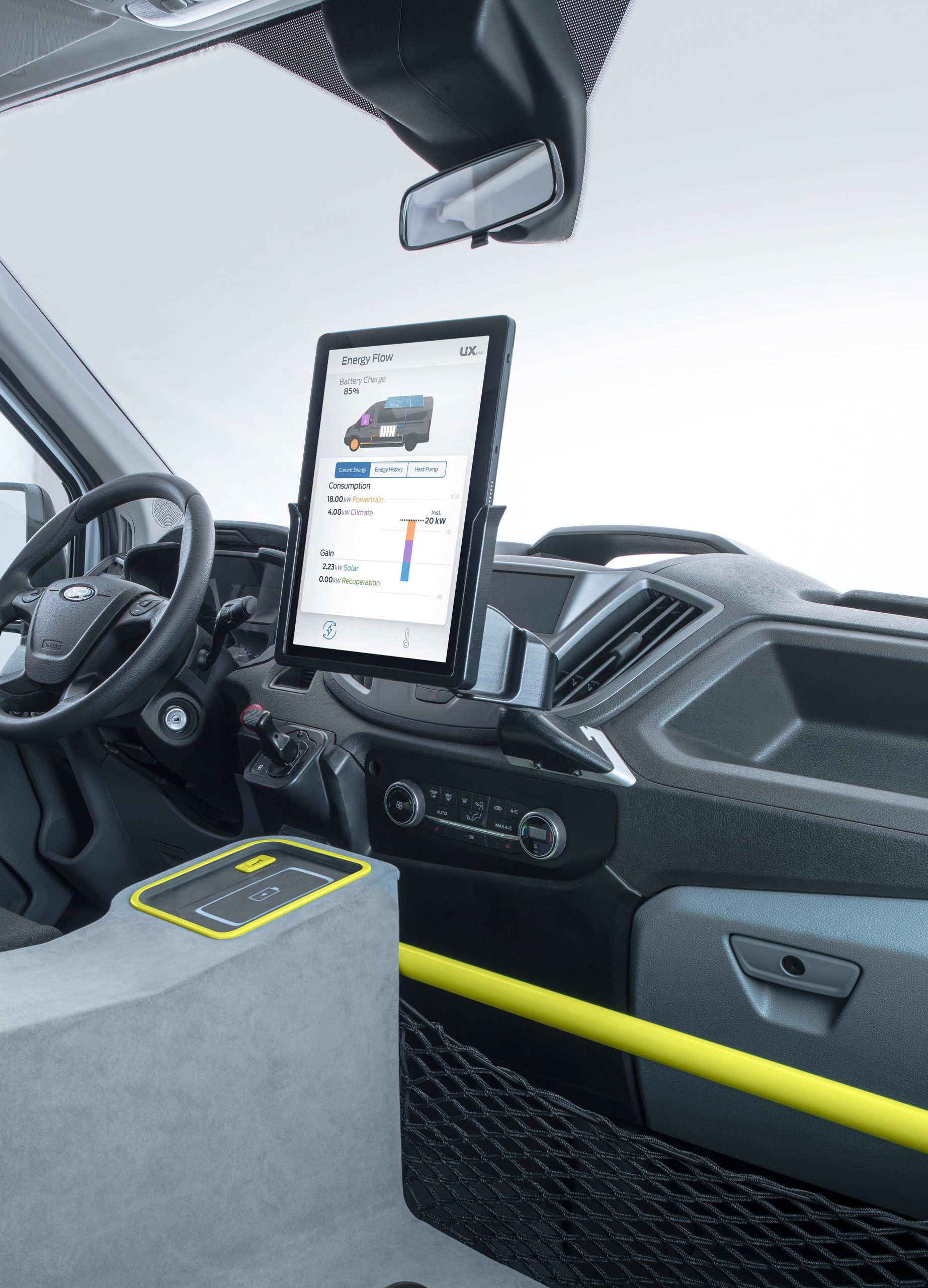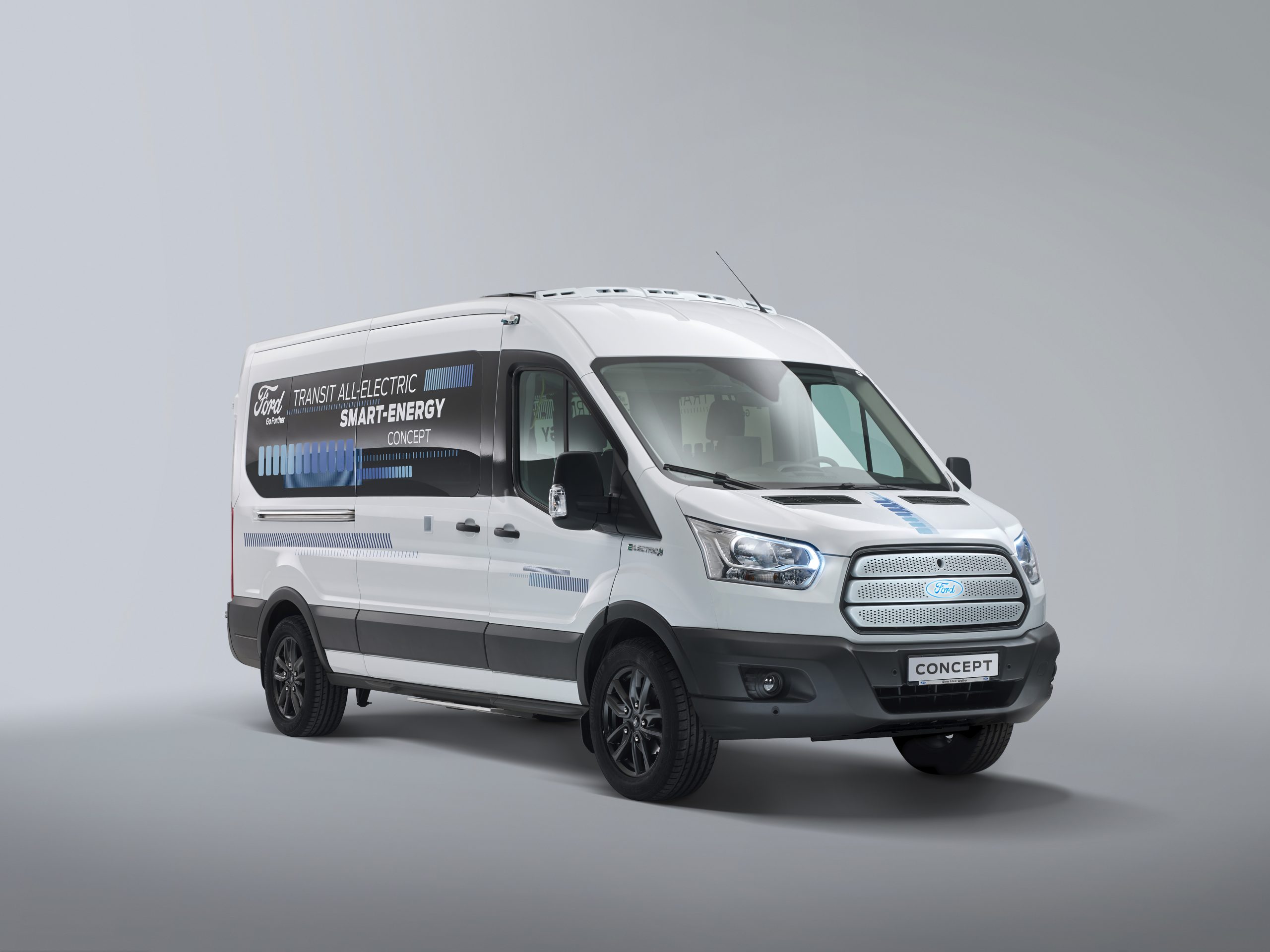There’s no way around it, electric vehicles are the future of transportation, and although the change will come progressively, it is happening. EVs originally felt like a bit of a gimmick. I mean, how the hell are you supposed to drive a fully electric car any substantial distance? And this was a big deal-breaker for would-be owners who do lots of highway miles instead of short city trips (where the original EVs really excelled). But thanks to expanded charging locations and ford service facilities, EVs are becoming mainstream. And while internal combustion engines will likely remain viable for specialty vehicles (and applications), you can bet that EVs will become a significant portion of the vehicle market in the upcoming decades. With Ford’s recent partnership with Rivian, it is no surprise that we are starting to see advanced electrification of Ford vans and trucks.
Ford Announces Electric Transit for 2022
Commercial vehicle fleets are one of the first places we may see widespread adoption of EVs, due partly to their electric drivetrains which have much lower maintenance intervals than gas or diesel. And this is the market that Ford has set their sights on. The electric Transit van line will be available for 2022 delivery and will come in three body heights and three lengths. Integrated cloud-based fleet data collection will provide businesses with valuable insights about their transportation routes and last-mile deliveries and a built-in FordPass Connect modem will offer 4G LTE data connections for up to 10 devices, keeping drivers connected on the road.

But if you are like me, you’re not too concerned with the business implications of an electric fleet of commercial cargo vans or integrated data collection. Likely, you are already imagining the layout and finish details of your fully electric Transit campervan. And the Transit won’t be your only EV option in 2022. Maybe you’ll forego the electric Transit in favor of the electric F150?
Ford cites a few reasons behind its push to offer an electric Transit, including reduced operating noise, improved air quality, lower cost of ownership, and helping businesses meet their increasingly important sustainability goals. If you ask us though, a big part of Ford’s motivation is survival (Mercedes already announced their all-electric Sprinter). But whatever EV platform you choose (if you do go electric) there is no doubt about it, electric vehicles have some inherent advantages at the moment including local and federal tax credits, access to HOV/carpool lanes and occasionally, free parking.
Innovations that enhance energy efficiency and driving range being tested for the first time include:
- An innovative heat pump system that utilizes waste heat from the drivetrain components, the outside air, and the air within the cabin to reduce heating system energy usage by up to 65 percent, resulting in a range extension of 20 percent
- A power sliding door that opens halfway to reduce heat loss and can be activated by the passenger using a smart device. The heating, ventilation and air-conditioning blower is automatically deactivated when the door is open.
- Heated business-class passenger seats and surfaces that enable passengers to control their local temperature, reducing the energy required for the large cabin
- Six roof-mounted solar panels that charge a 12-volt battery for powering seat heating, cabin lighting, and onboard electrical systems including wireless charging for passenger mobile devices
- A polycarbonate divider between the passenger door and seating area that further reduces heat loss as passengers enter and exit, and protects passengers from external elements
- Ventilated double-glazed windows that reduce cold contact surfaces and insulate against heat loss
- An insulated rear floor and roof that further reduce cabin heat loss; it’s a great feature for building out a camper
It’s certainly an exciting time for the transportation industry and we should expect to see some big innovations in EVs in the upcoming years. Ford is investing over 11 billion dollars through 2022 to bolster their EV technology and vehicle offerings, and other manufacturers are making big EV investments as well. With an established network of over 700 certified electric vehicle service centers (Canada and US) as well as their EV charging network, Ford is certainly taking the steps to make EV ownership a reality in North America. Ford.com


